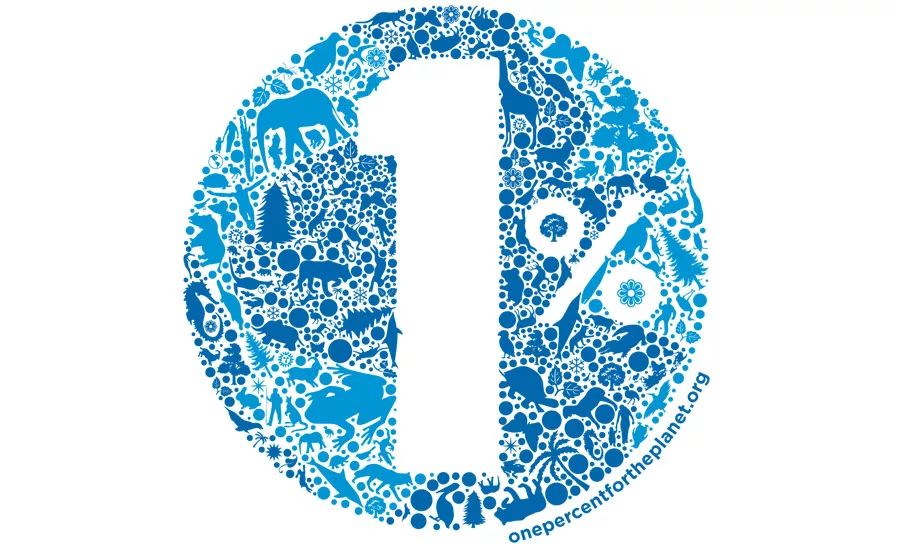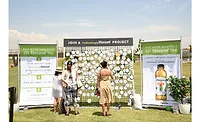1% for the Planet champions environmental causes
Beverage companies team up with environmental nonprofit

With myriad issues impacting the planet, including climate change, dwindling rainforests and food waste, the nonprofit organization 1% for the Planet, in partnership with more than 1,200 member organizations and thousands of nonprofit partners in 40 countries, has been championing environmental change since 2002.
Celebrating its 15th anniversary next year, the Burlington, Vt.-based environmental nonprofit organization was founded by businessmen and environmentalists Yvon Chouinard and Craig Matthews, who launched clothing company Patagonia and fly fishing equipment company Blue Ribbon Flies, respectively. An “a-ha” moment while fishing in Montana was what led these two entrepreneurs to expand into the nonprofit sector, says 1% for the Planet Chief Executive Officer Kate Williams.
“They realized that businesses have an opportunity and obligation to give back to and invest in the natural systems that support all economies,” she explains. “Their first project was to pool business resources to protect the very fishing area where the idea was born, exemplifying the inspiration of their own passion for the outdoors.”
From the initial idea, the 1% for the Planet network has grown to include diverse businesses from around the globe focusing on a variety of environmental issues ranging from reducing food waste to removing trash from oceans, the organization says.
“Companies donate at least 1 percent of sales directly to approved nonprofit organizations in our network, such as 350.org, Food Corps, the National Forest Foundation and Waterkeeper Alliance,” Williams explains. “… But the awesome part of our organization is that there are many ways members can fulfill their donation beyond writing a check.
“… Our member businesses volunteer, donate product and run advertisements featuring the great work that their nonprofits do,” she continues. “In the last year, we’ve seen members bring employees out on service days in local community gardens, provide pro-bono legal advice and more. … Not only does it benefit the nonprofits, but it also serves as a great brand-building strategy by helping members more deeply engage with their staff and consumers around their company values.”
Bound together by a shared commitment to caring for the planet, the network has given more than $150 million to approved nonprofit organizations, according to Williams. Beverage companies, like Honest Tea, an independent operating unit of The Coca-Cola Co.; Finlandia Vodka, a division of Brown-Forman Corp.; Spindrift, and Maine Beer Co., have given more than $10 million to date, she adds.
Member organizations, like Bethesda, Md.-based Honest Tea, can use the 1% for the Planet logo on their certified product line, helping increase the global impact of the 1% for the Planet brand. In return, the 1% for the Planet model provides third-party certification to a company’s giving, Williams explains.
“The health of the planet has always been at the core of Honest Tea’s mission,” Williams says. “They have been a 1% for the Planet member with their glass bottle product line sales since 2014 and have given generously to organizations such as FoodCorps, which helps to increase transparency around the way food is produced, distributed and consumed.”
Creating meaningful impact
Bringing awareness and solutions to broad issues like how energy is sourced, how to restore endangered habitats and rainforest preservation are among the ways member business and nonprofit partners are creating a meaningful impact, Williams says.
Beverage companies also are behind several causes. For example, because Finlandia Vodka is made with glacial spring water, the Helsinki, Finland-based brand supports Protect Our Winters and the New York/New Jersey Baykeepers, which focus on solutions to the water issues facing the planet, Williams says.
New York-based Juice Generation, which makes sustainably produced smoothies, is dedicated to giving more people access to healthy food. Through its partnership with Harlem Grown, a New York City nonprofit organization, the company funded three school garden projects, which grow 500 pounds of local food and help feed 800 children, she adds.
Additionally, Boxed Water is Better, Grand Rapids, Mich., and beauty supply company Caudalie, New York, have teamed up with the National Forest Foundation to support tree-planting initiatives in U.S. national forests throughout the next three years.
With 12 employees in the United States and additional capacity in France and Japan, 1% for the Planet is “a growing network of people paying it forward for the future of our planet,” Williams says.
More consumers also are committed to making a difference. According to New York-based Nielsen’s report titled “The Sustainability Imperative,” 66 percent of consumers say they’re willing to pay more for products and services provided by companies that are engaged in corporate social responsibility (CSR) initiatives.
Williams adds: “Consumers want their purchases to count — not just for them, but for the causes they care about. There is, in fact, a growing sense of urgency that is the context in which CSR initiatives are really resonating. Through the 1% for the Planet network, we are helping to build this awareness by bringing together dollars and doers to focus on the most pressing issues.”
Looking for a reprint of this article?
From high-res PDFs to custom plaques, order your copy today!




